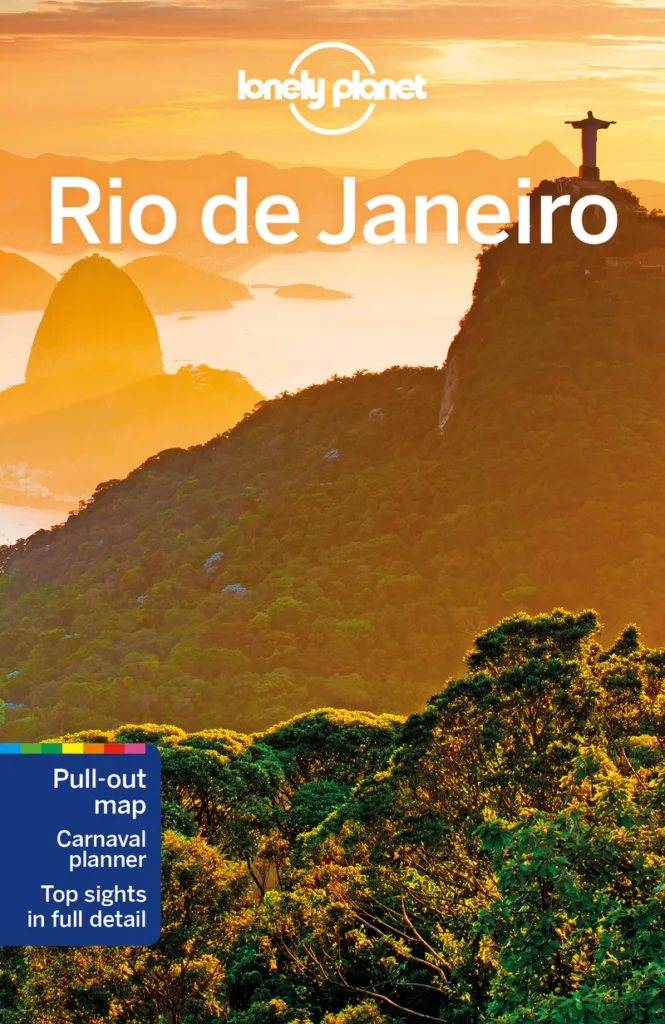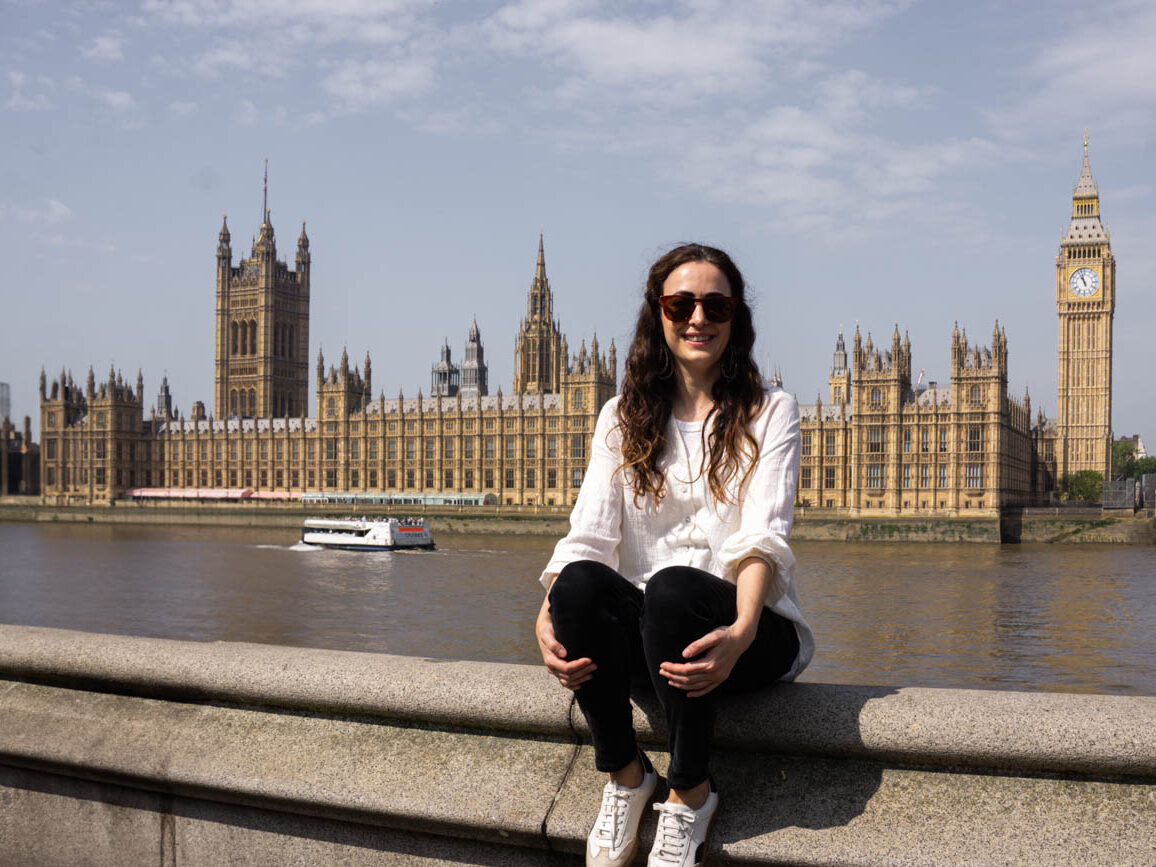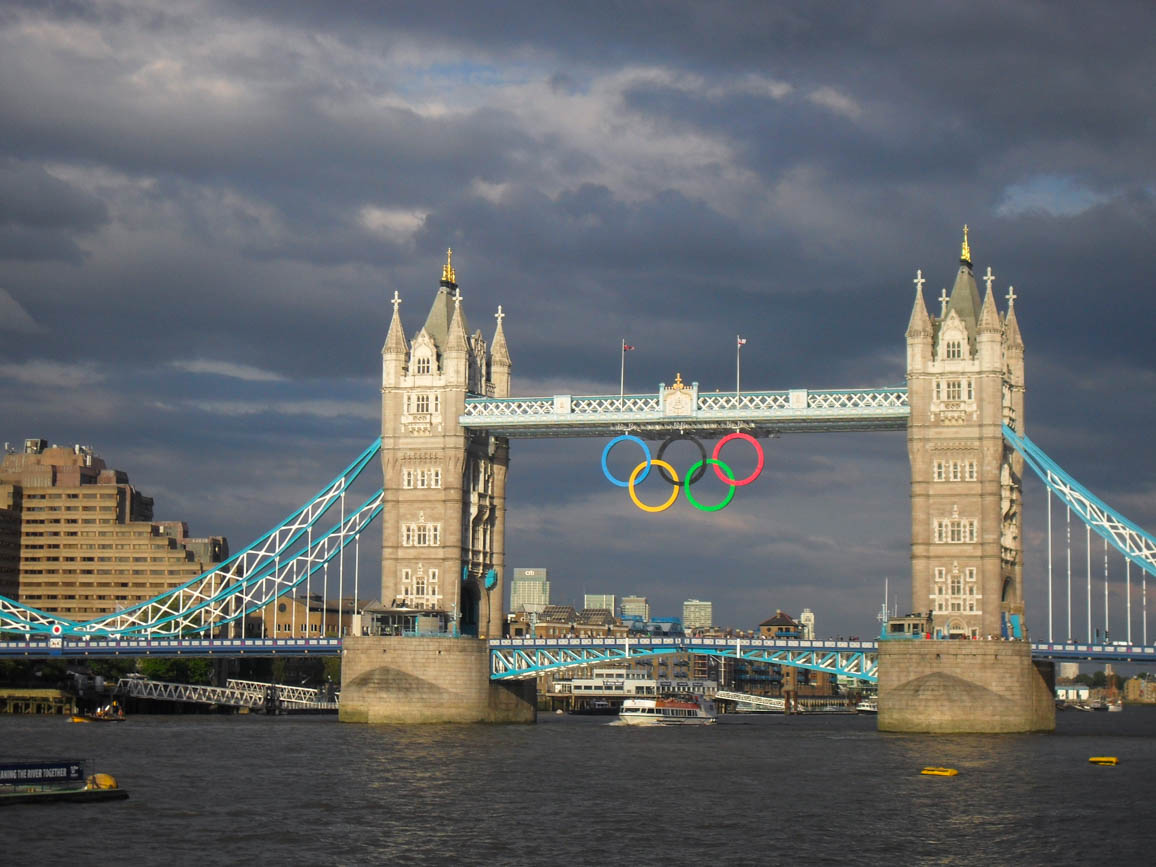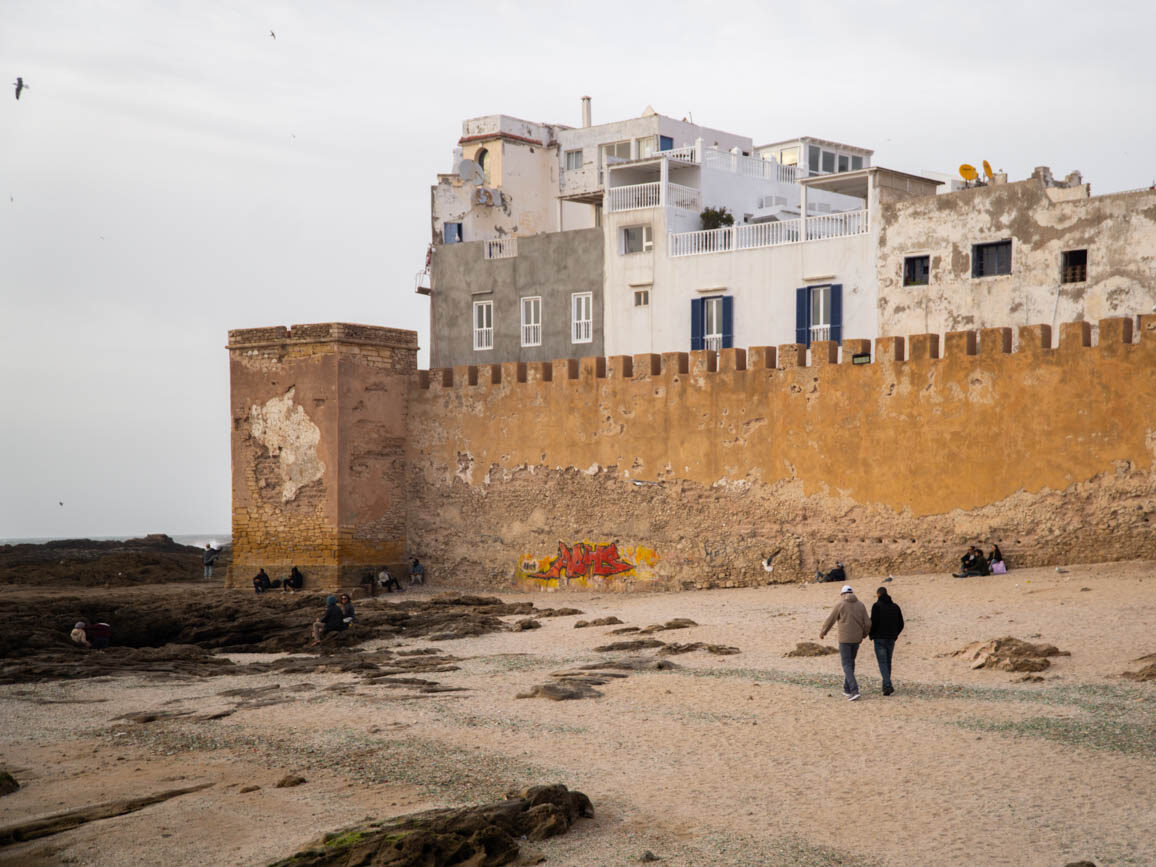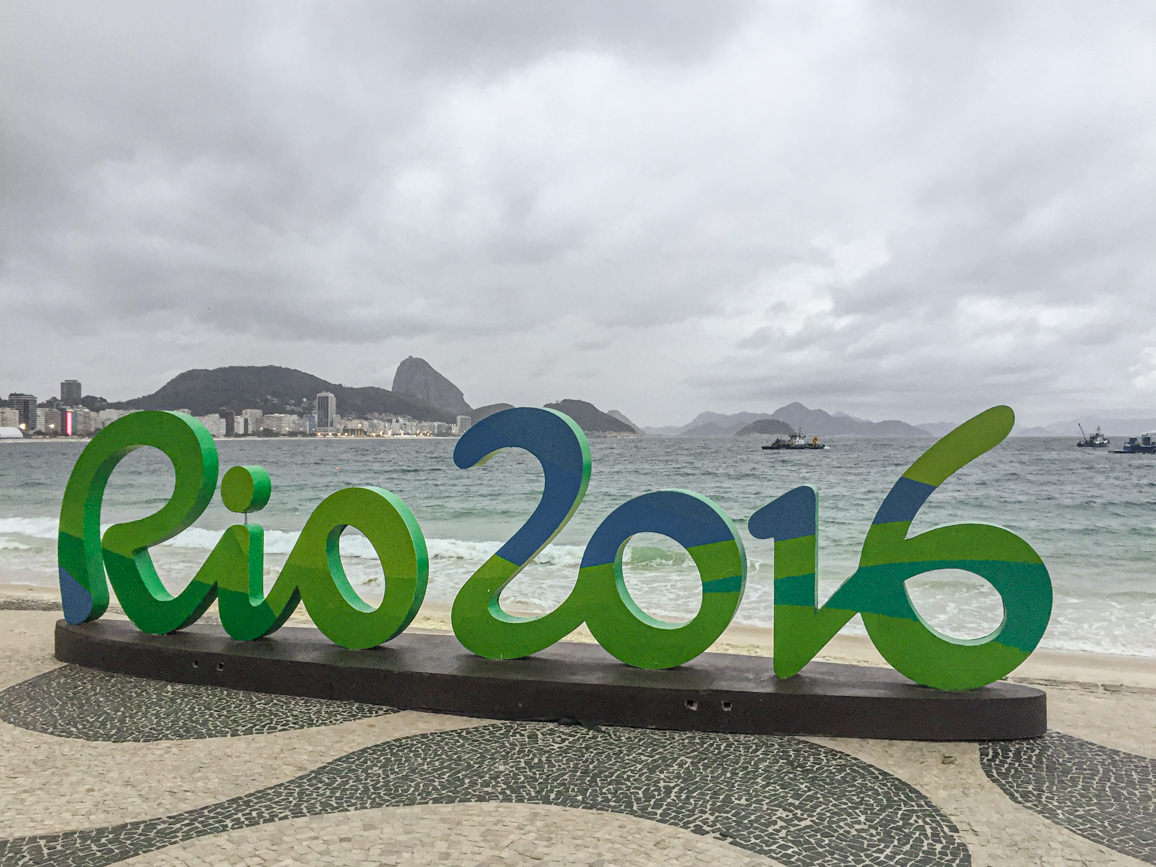
My experience during the Summer Olympic Games (Rio 2016)
Are you curious to know what attending a worldwide sports event like the Olympics feels like? From the inaugural ceremony to memorable beach volleyball games in Copacabana, let me take you to the frontlines of the Summer Olympic Games at Rio 2016. Ready to become an Olympic spectator in the Brazilian city of Rio de Janeiro?
***
***
Also, note that throughout the trip, I used this Rio de Janeiro travel guidebook by Lonely Planet to plan our stay and make the most out of it. I hope you’ll find it helpful too!
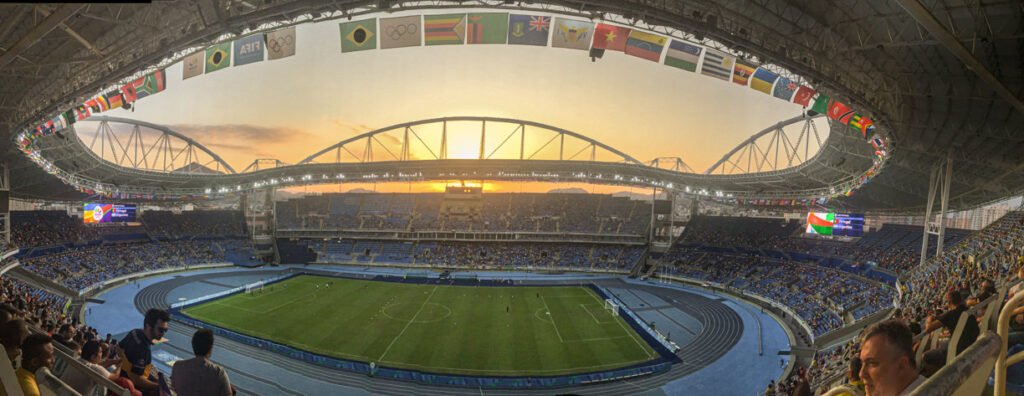
Olympic Games history
Before jumping into the sports and games that we watched during the Olympics in Rio, let’s start from the very beginning.
How did the first Olympic Games originate? When and where did they take place?
The Ancient Olympic Games were born in Greece, and were a major sporting, social and cultural event for almost 12 centuries! Honoring Zeus, they happened every four years from 776BC to at least 393AD in the city of Olympia. Nowadays, you can still visit the Archaeological Site of Olympia and walk around the ruins of the most important religious and sports center in Ancient Greece.
The sports of the Ancient Greek Olympic Games were the following:
- Boxing
- Chariot racing
- Long jump, javelin, discus
- Pankration (a sort of mixed martial art combining boxing and wrestling)
- Running
- Wrestling
During the Ancient Olympic Games (also known as Panhellenic Games), only free Greek males were allowed to take part. The athletes competed naked, except for the chariot race. There was only one winner, who was awarded with a wreath.
At the height of the Games’ popularity, over 40,000 spectators would pack the stadium each day. Unfortunately, the Ancient Olympic Games came to an end in 393AD, when Roman emperor Theodosius I forbade celebrating pagan cults such as the Olympics.
Forgotten for centuries, the French Baron Pierre de Coubertin proposed to revive the Olympic Games. It wasn’t until 1896 when the first edition of the modern Olympic Games took place in Athens (Greece), while the first winter edition was held in Chamonix (France). Since 1994, the Olympic Games have alternated between a summer and winter edition every two years within the four-year period of each Olympiad. With the birth of the first Paralympic Games in Rome 1960, these take place in the same cities as the Olympics and provide a platform for disabled athletes with a diverse range of impairments to showcase their outstanding abilities.
Based in Lausanne (Switzerland), the International Olympic Committee (IOC) is a not-for profit independent international organization promoting Olympism worldwide and overseeing the regular celebration of the Olympic Games. If you’re actually visiting the Olympic Capital of Lausanne, I encourage you to stop by the Olympic Museum overlooking lake Léman.
Written by Pierre de Coubertin around 1898, the Olympic Charter codifies the fundamental principles of Olympism, and the rules and bylaws adopted by the International Olympic Committee. As a true visionary, de Coubertin also designed the worldwide famous Olympic rings, symbolizing the union of the five continents and the meeting of athletes from around the world at the Olympic Games.
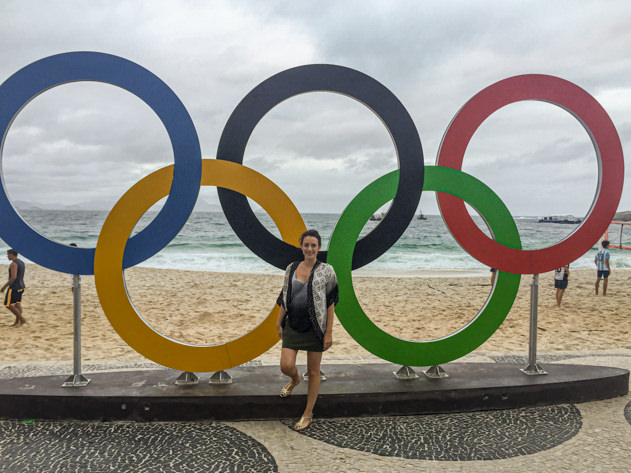
My experience in Rio de Janeiro during the Summer Olympic Games of Rio 2016
Officially branded as Rio 2016, the Summer Olympics took place in the Brazilian city of Rio de Janeiro from the 5th to the 21st of August, 2016. They were followed by the Paralympic Games from 7 to 18 September.
While I explored the city with my friends from Spain, we also attended various sports games, from football and cycling, to beach volleyball and handball. These were our second Olympic Games after our epic London 2012 trip.
However, our main reason to travel all the way to Rio was to support our dear friend Ander Elosegi, competing for a medal in the canoe slalom category. After unsuccessful attempts in Beijing 2008 and London 2012, we hoped this would be his chance!
Learn about our group trip to London 2012!
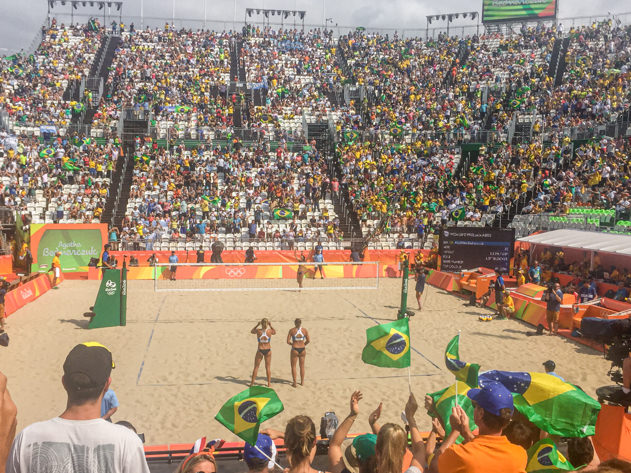
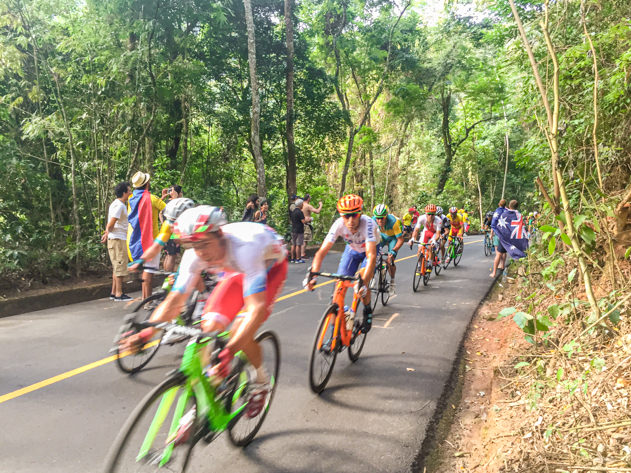
Olympic sports and events that we saw in Rio 2016 + map
During the nine days we spent in Rio de Janeiro, these are the Summer Olympic Games sports and events that we experienced firsthand, be they for free or with tickets. The venues are also mentioned for ease of reference and you will find them pinpointed in the map below:
- Beach volleyball (Copacabana beach): we went to various beach volleyball games in the nearby stadium located in Copacabana, including women’s Switzerland vs Australia and Brazil vs Argentina, as well men’s Russia vs Poland and Spain vs Qatar.
- Canoe slalom (Whitewater stadium): without a doubt, this was our main highlight of the Rio 2016 Olympics. We had come all the way to Rio de Janeiro to cheer our friend Ander Elosegi, who was competing in the C-1 (Canoe Single) Men category, after finishing in 4th place in both Beijing 2008 and London 2012. Our friend was qualified for the C1 slalom canoeing semi-final and he did great in that round. Ander literally nailed it and set the second fastest time. Despite the blazing sun, we were truly excited hoping that he would finally get a medal! Unfortunately, things went wrong in the final. Ander knocked on two doors, adding 4 seconds to his mark, which eventually meant getting yet another Olympic diploma. Despite all his efforts throughout these years, he finished in a bitter 8th place; a great achievement for our friend nonetheless!
- Cycling road (Tijuca National Park): the cycling road course passed various times by the imposing Parque Nacional da Tijuca, one of the top things to do in Rio de Janeiro. While we were waiting, we saw a lot of macaques and we talked to many sports fans from around the world.
- Football (Olympic Stadium): we watched the end of the Honduras-Algeria soccer game followed by the Portugal-Argentina match.
- Handball (Future Arena pavilion): located in the Barra Olympic Park, we watched the Denmark vs Croatia and Brazil vs Germany matches on our final day in Rio. Great atmosphere to finish our Olympic experience on a high note!
- Olympic Torch Relay: symbolizing peace, friendship and the spirit of the Games, this ritual ceremony carries the Olympic flame along its route, engaging the local population and hence creating excitement in the lead up to the Olympic Games. We were lucky to see the torch bearers passing by when we were sunbathing at Praia do Arpoador, next to Ipanema!
- Opening Ceremony of the Summer Olympics (Maracanã Stadium): according to the Olympic Charter, the opening ceremony combines mandatory protocol elements such as the Parade of Nations with an artistic show that presents the culture of the host country. Both the opening and closing ceremonies took place in the iconic Maracanã Stadium. My friends and I headed to the Boulevard Olímpico next to the Carioca metro station to follow the ceremony on giant screens on the street. I loved seeing Brazilian supermodel Gisele Bündchen doing the catwalk to the sound of the famous song ‘Garota de Ipanema‘!
Check out the Olympic events we attended in Rio by using the map below. For a full recap of Rio 2016, head to the official Olympics website.
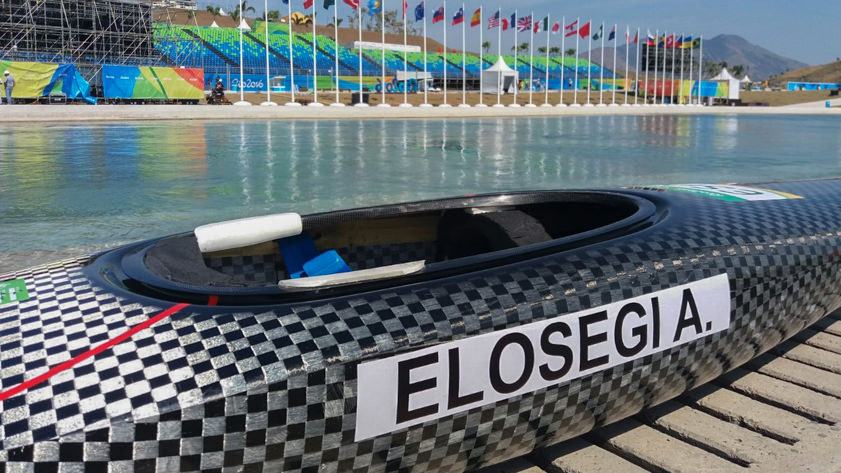
How to get tickets to the Olympics
Be careful when buying your tickets for a worldwide event such as the Olympic Games, and always make sure to get them from an official website and/or partner. Note that chances are you won’t know what teams and athletes will be competing in your ticketed events when purchasing them.
We bought ours online beforehand via Sportsworld. On my first day in Rio, we headed to the Botafogo area in order to pick up our tickets for the Olympic events we had booked.
Discover more destinations in Latin America!
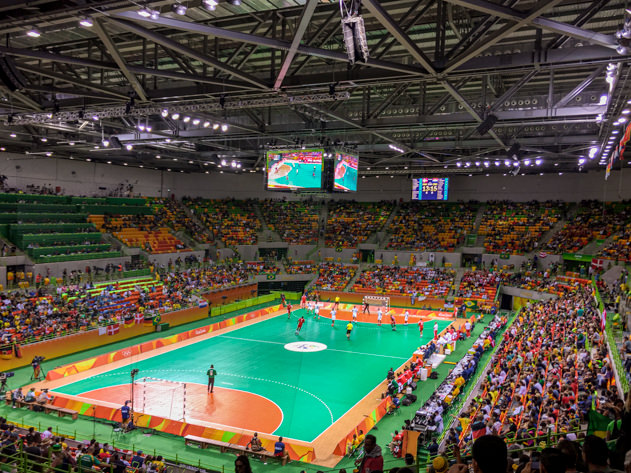
My impressions about the Olympic Games in Rio (Rio 2016)
According to my own experience following the Summer Olympic Games of Rio 2016, here’s what to expect before you go:
- Upon landing in Rio and arriving to the Galeão international airport, I was surprised by the heightened security. There were armed policemen and military soldiers pretty much everywhere we went, not only at the airport, but also throughout the streets of Rio and around the Olympic venues.
- That being said, always watch your belongings, as petty crimes such as thefts are unfortunately very common in Rio de Janeiro. As a matter of fact, even though my friends and I were taking turns in Ipanema to bathe on the beach, one of our backpacks was stolen and we didn’t even notice until later on!
- Even if well connected by public transport, consider taking enough time to go from one Olympic venue to another. We got around Rio easily, mainly by metro. But it took us a long while to reach certain locations such as the Whitewater stadium or the Future Arena pavilion. Furthermore, getting to some places involved transfers, lots of walking and standing in line for the ticket check. So allow plenty of time for peace of mind! By the way, the host city was fully dedicated to the Olympic Games, and even the subway simulated athletics tracks!
- Expect long lines of people when attending Olympic events, even if you bought your tickets in advance. For example, when watching the football matches in the Olympic Stadium, we had to queue outside for a long time as there were just two entrances and we only managed to get in towards the end of the first match. You might also encounter big crowds when taking public transport to go to or return from certain venues.
- I was surprised by the high number of locals selling food and drinks on the street around the Olympic venues in Rio, taking advantage of the flock of spectators from around the world. Don’t get me wrong, I totally understand them wanting to profit during a major sports event such as the Olympics. Actually, while we were waiting to get into the Olympic stadium for the football matches, the street sellers created a lot of atmosphere. Locals were literally using their own barbecues and kitchens to cook for the public, and we ate delicious skewers and drank caipirinhas while we were on the line.
- Not all fans are created equal! The Argentinian fans were so much fun when cheering their own and they were literally in every sport or match that we went to. The Australians were cool too. By the way, remember to stock up on patriotic gear from your own country such as flags, T-shirts or caps to show your national pride in Olympic venues! Your friends and family might even spot you on TV. 🙂
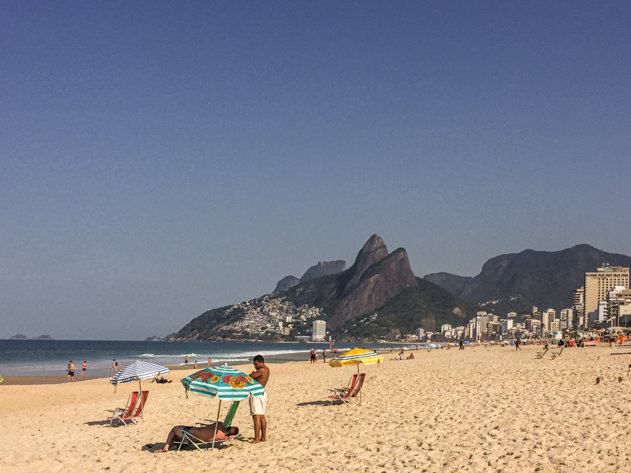
Read this destination page for more inspiration around Brazil!
9 things to do in Rio de Janeiro: the ultimate travel guide & map
Angra dos Reis & Ilha Grande: the perfect tropical getaway from Rio de Janeiro
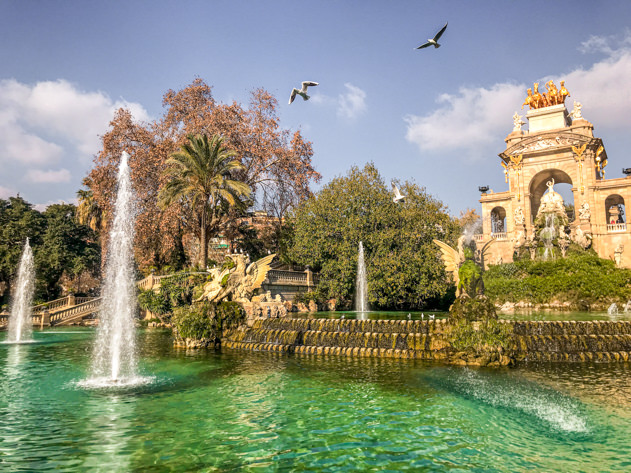
Olympic cities around the world
Since their revival in 1896, the modern Olympic Games have been taking place across continents, bringing athletes and spectators together while leaving an enduring Olympic legacy in the host cities.
Here you will find a list including all the host cities of the past games, from both the summer and winter editions.
Browse all the Olympic cities that I’ve visited over the years and see when the Games took place there!
Atlanta (1996)
Barcelona (1992)
Chamonix (1924)
London (1908, 1948, 2012)
Los Angeles (1932, 1984)
Mexico City (1968)
Montreal (1976)
Oslo (1952)
Paris (1900, 1924, 2024)
Rio de Janeiro (2016)
Rome (1960)
Stockholm (1912)
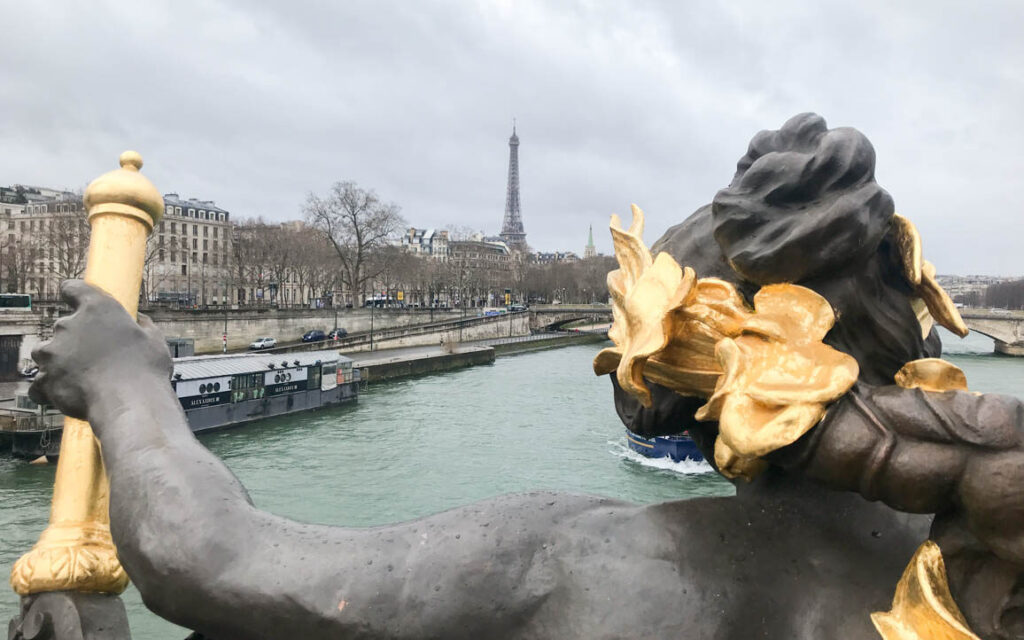
The next Summer Olympics: Paris 2024
The next Summer Olympic Games in the capital of France are just around the corner, making this the third time that Paris becomes the host city.
Paris 2024 will take place from July 26th until August 11th, followed by the Paralympic Games (28 August – 8 September).
You can start buying your official tickets now!
Get inspired and start planning your trip to Paris with these posts!
A week in Paris: day by day itinerary
Tips for your visit to Disneyland Paris
10 series & films to travel while binge-watching
How did you like this post detailing my experience during the Rio 2016 Summer Olympic Games in Rio de Janeiro? I hope that you found it useful if you’re planning to attend the next Olympics soon. Feel free to leave your questions and comments below!

